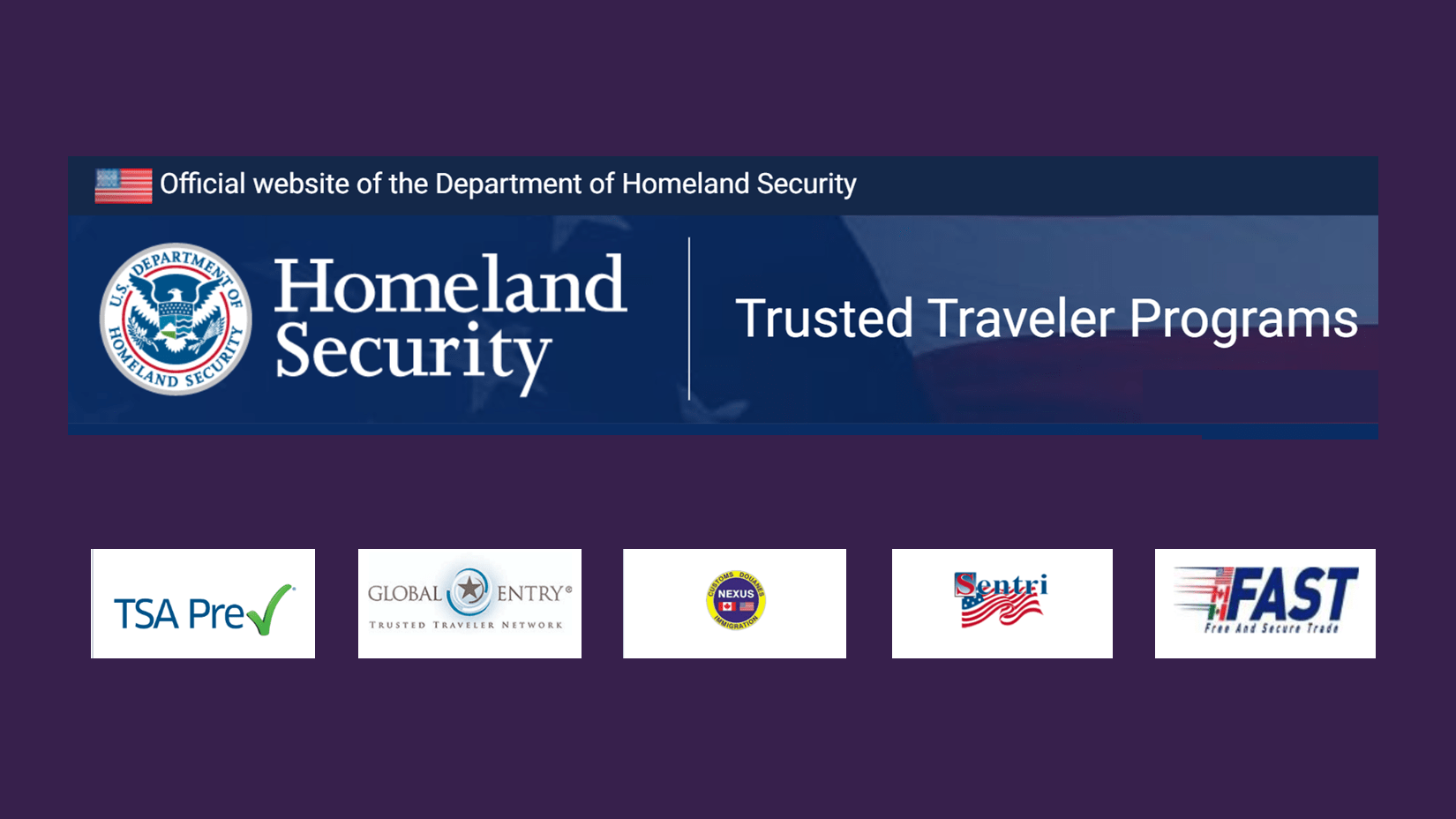Scammers like to take advantage of unwitting people, especially in stressful situations. If you are planning some traveling and considering being pre-approved for expedited entry at airports and borders, be alert and double check the site you use BEFORE you provide any personal information.
According to the BBB if you search for the Global Entry application online, the official U.S. Customs and Border Protection website appears —unfortunately, further down the page beneath several ads with very legitimate-looking URLs that were obviously built to imitate the official page – but neither of those companies are approved by Customs and Border Protection (CBP). One of those so-called “expediting agencies” was traced to a shady-looking warehouse in Houston. Those third-party companies charge fees to process Trusted Traveler Program applications, and they are not endorsed by, associated with or affiliated in any way with U.S. Customs and Border Protection or the U.S. government.
The official US government CBP program, “Trusted Traveler Programs” is actually five different campaigns targeted to the different needs of travelers and designed to facilitate the entry of pre-approved travelers: Global Entry, TSA PreCheck®, SENTRI, NEXUS, and FAST. Take a short online survey and you’ll be directed to the “Best Match” program for your needs. Receiving a “Best Match” or program recommendation based on eligibility or travel habits does not guarantee acceptance into any Trusted Traveler program.
All applicants are vetted to ensure that they meet the qualifications for the program to which they are applying.
If you follow one of the imposter links, you’re brought to a third-party company that offers to complete all the requisite paperwork on your behalf — just provide your personal information, such as your full name, passport number and home address. You’ll be prompted to pay the standard $120 government fee, plus an additional fee for the service.
What’s just happened? According to the BBB, “scammers have tricked you into paying extra money to complete the form on the official government website. Also, they now have access to your personal information and credit card details.”
Unfortunately, it’s always bad news when your credit card details, home address and personal information such as full name, date of birth, driver’s license number and passport information have all been compromised.
“You have just opened up the gateway to becoming a victim of identity crime,” said Eva Velasquez, president and CEO of Identity Theft Resource Center, who suggests people act quickly if they accidentally give out personal information on a suspicious website.
Even if nothing happens to your data immediately, it’s no fun finding out the hard way that unscrupulous strangers have so much access to your private information. “A passport in the wrong hands could lead to various forms of fraud,” said security awareness expert and Safr.Me CEO Robert Siciliano.
And just because data breaches are widely prevalent doesn’t mean the risks are mitigated in any way. “Recovering from identity theft can be a long and frustrating struggle,” said Michael Bruemmer, Experian’s VP of consumer protection. “Many people think it can only happen once, or that risks fluctuate. To the contrary, identity theft often carries with it lifelong consequences.”
The good news? A few simple safety steps can reduce the risk of identity theft and help current victims monitor for possible fraud. Victims can do damage control by reporting financial and identification documents stolen, keeping a close eye on physical security at their homes, and subscribing to online data reports. Most importantly, take a few minutes to verify the online site you use BEFORE you provide your sensitive personal information to avoid the problem altogether and stay safe.

